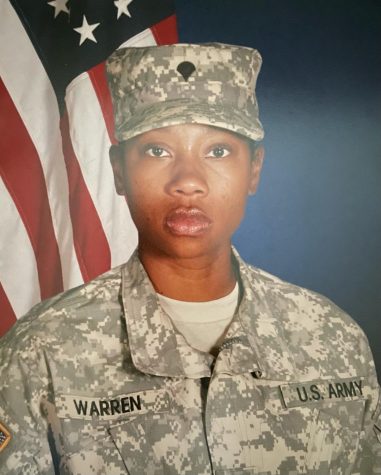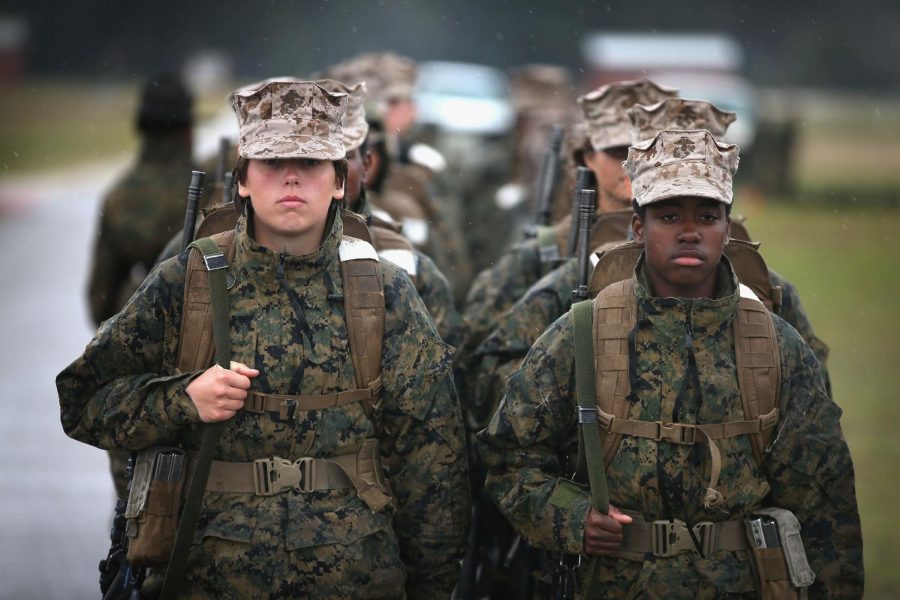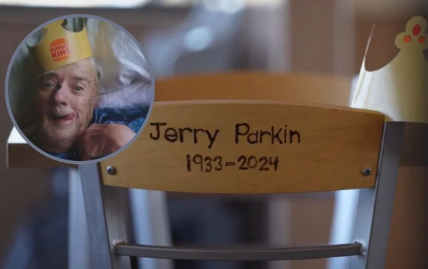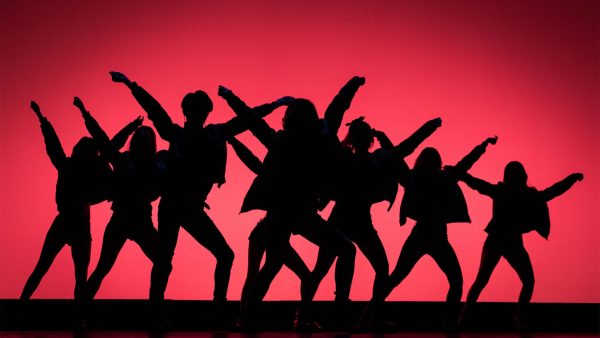Women in the military
Currently, there are two thousand women in the military; that makes up 17% or just under one-fifth of the armed forces. Though woman have been permitted in the military since 1948, when President Truman signed the Women’s Armed Services Integration Act into law, there are still obstacles and problems that women in the military face.
According to The Washington Post, the number of women in the military has not increased in the last fifteen years, and women are more likely than men to leave. As their reason for leaving, some of the most common reasons include sexism, a lack of opportunity for promotion, a lack of flexibility for childcare and pregnancies, and sexual assault.
A Washington Post article noted that in 2018 “the Pentagon recorded a nearly 38 percent spike in sexual assaults reported by service members.” The same article reported that there were 20,500 instances of “unwanted sexual contact” ranging from groping to rape.
NPR notes that women in the military often leave due to pregnancy. Not only is it difficult to carry out the physical training and responsibilities of the job while pregnant, but also long deployments create obstacles for mothers and families. Additionally, military insurance does not cover abortions. “Department of Defense policies prohibit military facilities from providing insurance from from covering abortions,” says NPR.
The New York Times and author Lauren Katzenberg ran a piece featuring stories from 40 women in the military to show some of the issues that are unique to female service members.

In one story, in 2004, naval Officer Petty, First Class Liberty Law, had a video of her getting in and out of the shower passed around. One of her shipmates got into her barracks and put a camera in her bathroom and started to record. She didn’t find the camera until she got out of the shower. She then took it to the male chief officer, who told her that he would get to the bottom of it. However, by lunch, people were giving her very weird looks and at that point, she knew why. One of the other shipmates told her that everyone had passed around the video of her getting in and out of the shower.
Petty Officer, First Class Jen Coriat, who retired from the Navy in 2004, was stationed in San Diego arrived and she found out that she was the first female sailor to enlist and be stationed onboard. However, she soon found out they had nowhere for her to sleep. Access to private bathroom and sleeping spaces as well as access to feminine care and products can create an atmosphere where women do not feel welcome, according to some military members.
In 2015, Florence Shmorgoner, Marine Corps, was sexually assaulted. She waited till 2017 to report it. She was scared that no one was going to believe her and tell her that she was a trouble maker. After the assault, she decided to get counseling. During counseling she found out she has depression, anxiety disorder, and PTSD from the assault. She says many days she has thought about committing suicide, and to this day she still is having nightmares.
In another story, Ashley Romaniello, a former Marine Corps member was kicked out of the Military in 2013 because she was open about being gay. She returned in 2013 when a policy was put in place by Bill Clinton: “Don’t ask, Don’t tell.” She had to do all of her training again, and eventually she graduated as an infantry rifleman. According to Romaniello, her sexuality should have nothing to do with her being a soldier. “If I can even protect even just one, I’ve done something meaningful,” she said. She is still dedicated to her country and loved what she did for it.
 Alexis Warren, an Army National Guard in 2004-2015 told me about some of the ups and downs of being in the Army. When she first got there she had to strip down and get in the shower and they only gave her three minutes. The first night she got there someone got in trouble and “smoked” them. Getting smoked is when the Drill Sergeant comes in the room at any time of day and starts to yell; members have to get up and do whatever they’re told to do. They often made them do push-ups until they say stop. If one person in the group got in trouble, that means the whole group gets in trouble.
Alexis Warren, an Army National Guard in 2004-2015 told me about some of the ups and downs of being in the Army. When she first got there she had to strip down and get in the shower and they only gave her three minutes. The first night she got there someone got in trouble and “smoked” them. Getting smoked is when the Drill Sergeant comes in the room at any time of day and starts to yell; members have to get up and do whatever they’re told to do. They often made them do push-ups until they say stop. If one person in the group got in trouble, that means the whole group gets in trouble.
Lights would be out at 9 if she didn’t get in trouble, and she would have to wake up at 4 am. Specialist Warren also talked about getting treated differently both because she is a woman and because of her ethnicity. Warren works on cars, and there are only three women in the mechanic division. The color of her skin could also be a problem sometimes; she felt that she was treated differently but it was not too bad. Training for her was not that bad but she did say that she needed to be fit and healthy to keep up with the running, marching, and workouts. Close to her graduation, she had to march 10 miles from her base and back, she didn’t get back till early morning.
Alexis’s training included shooting all weapons, throwing grenades, and living outside. They had to practice carrying bodies in case someone was hurt. While living outside, she nowhere to shower and no toilet to use the bathroom. She says that one of the hardest tests was the gas chamber. She went into a room with other people with a gas mask on, and when the room filled with gas, they had to take off the mask and breathe in a few times so they would know what it would feel like and practice putting on the masks while disoriented.
Specialist Warren also shared a story about when she got in big trouble when she left her locker open because that was against the ¨rules.” When she came back she saw that they dumped trash on all of her possessions, and all of her things were everywhere.
Her room was set up where there were 60 people in a room, and one side was women and one side was men. If a man got caught on the women’s side, there would be consequences. Every person also had to sleep with their weapon.
Alexis says that she has learned so much in just six months. “You can do anything, and becoming a soldier would show you that.” The army has helped her and given her so many opportunities. It has helped her learn to defend herself and get mentally stronger.







